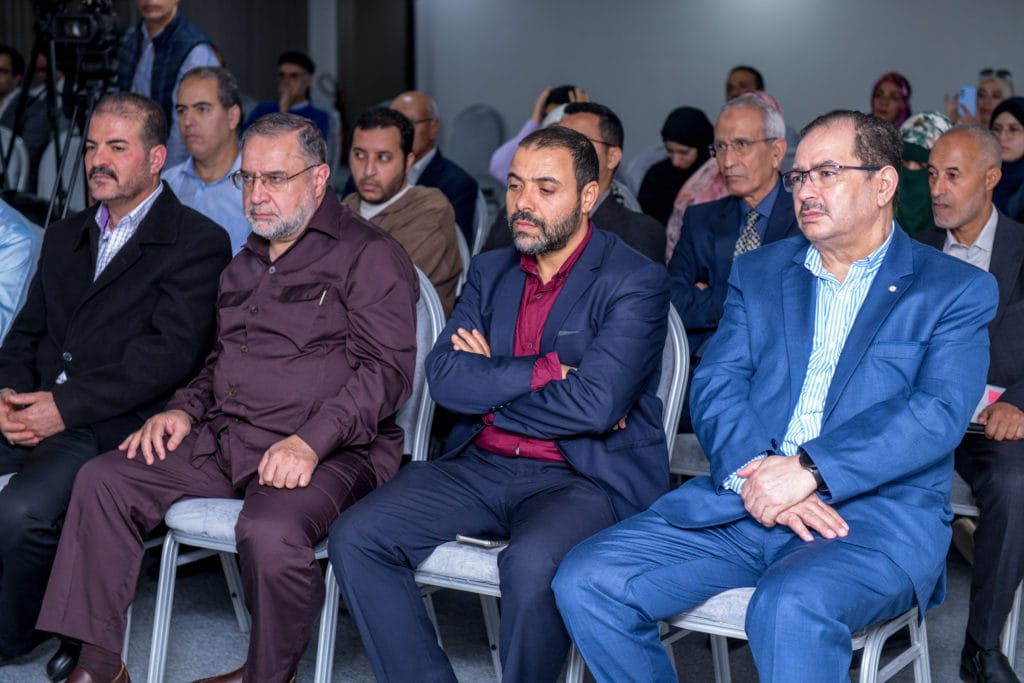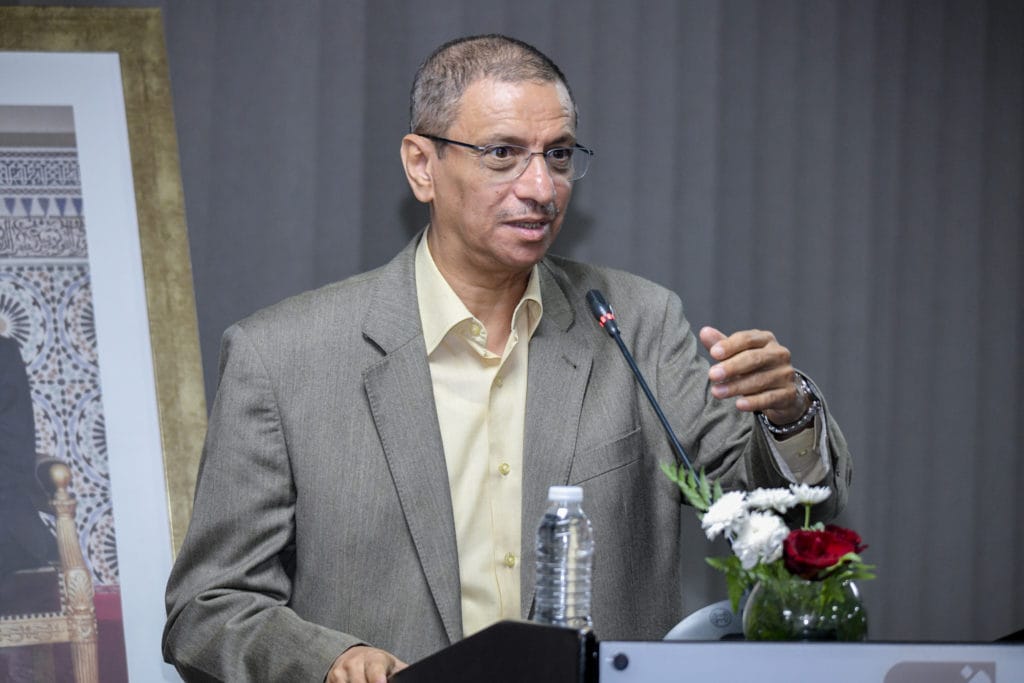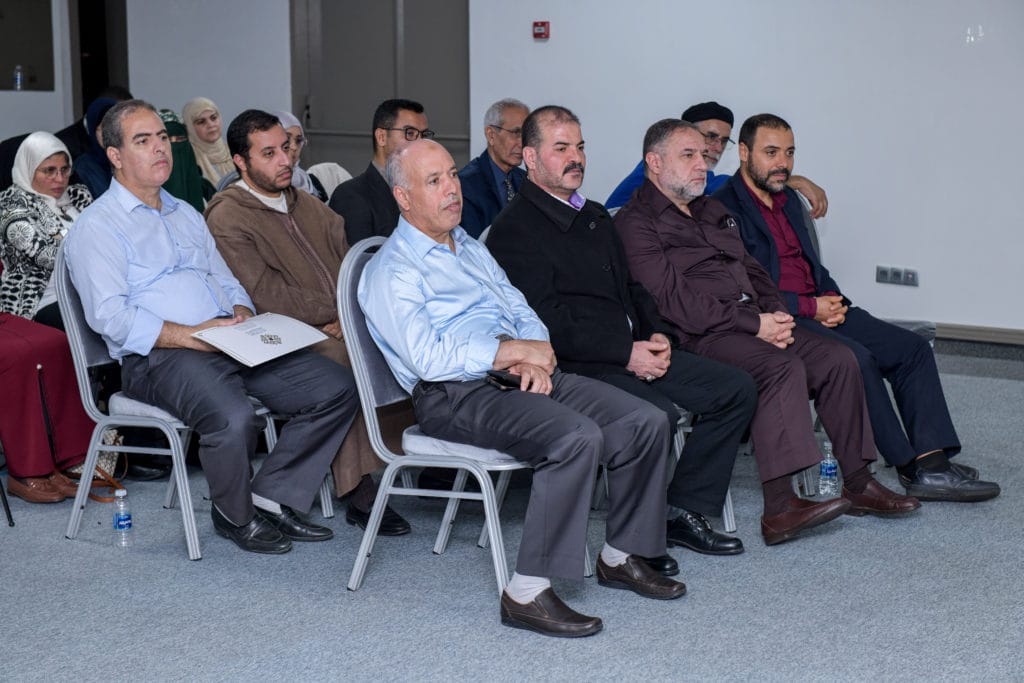Professor Bashar Awwad Marouf
Al-Furqān Islamic Heritage Foundation organised a scientific lecture by the esteemed erudite scholar, Dr Bashar Awwad Marouf, titled “Insights into the book, “al-Istidhkār”, by Ibn ‘Abd al-Barr al-Namarī”. Dr Mohammad Salim al-Awwa chaired the event held in the evening of 8 November 2022CE at Farah Hotel, Rabat.
Dr Bashar started by saying: Ibn ‘Abd al-Barr is a man of grand stature, and it would be improper to speak about him in just a few minutes or a short time. I have lived with him through two of his great books; the first, “al-Tamhīd”—graciously published by Al-Furqān Foundation, and the second, al-Istidhkār. I expect the latter to be as extensive as “al-Tamhīd” in seventeen volumes. I have finished the book, with only the indices remaining to be finalised within a month.
Ibn ‘Abd al-Barr is from an Arab family belonging to Taym Allāh ibn Qāṣid. The family settled in Cordoba, where he was born and subsequently died in 463AH; he lived for 95 years, but I do not want to delve into his life. He was highly regarded by the scholars of his time, including Imām Ibn Ḥazm. Despite Ibn Ḥazm’s position on the schools of Islamic doctrine (madhāhib), their relationship was not at all affected, because he was committed to following the traditions. Indeed, Ibn Ḥazm quotes Ibn ‘Abd al-Barr liberally. Furthermore, his prowess in Prophetic tradition (ḥadīth) was lauded by Abū ‘Alī al-Ghassānī al-Jayānī, al-Dhahabī, and others. Initially, Ibn ‘Abd al-Barr espoused Ẓāhirī literalist jurisprudence, then changed to Mālikī, yet leaning towards Shāfi‘ī opinion in some specific questions. He attained the position of creative jurisprudent (mujtahid), which is well-known from his books. This demonstrates Ibn ‘Abd al-Barr’s value, especially given the commendation by Imām al-Dhahabī.
Dr Bashar mentioned that he had procured every manuscript copy of this book, except one in Pasha A‘yān library in Basra, which is an incomplete part. A two volume copy is held in Dar al-Kutub al-Miṣriyyah in Egypt. This was transcribed from the copy belonging to resident of Alexandria, Abū Ṭāhir al-Salafī (d. 575AH), which he described as excellent. However, a Maghrebi copy was not so; notwithstanding the beautiful penmanship, the scribe was not a scholar, and the copy suffers interpolation, lacunae, and other indescribable things.
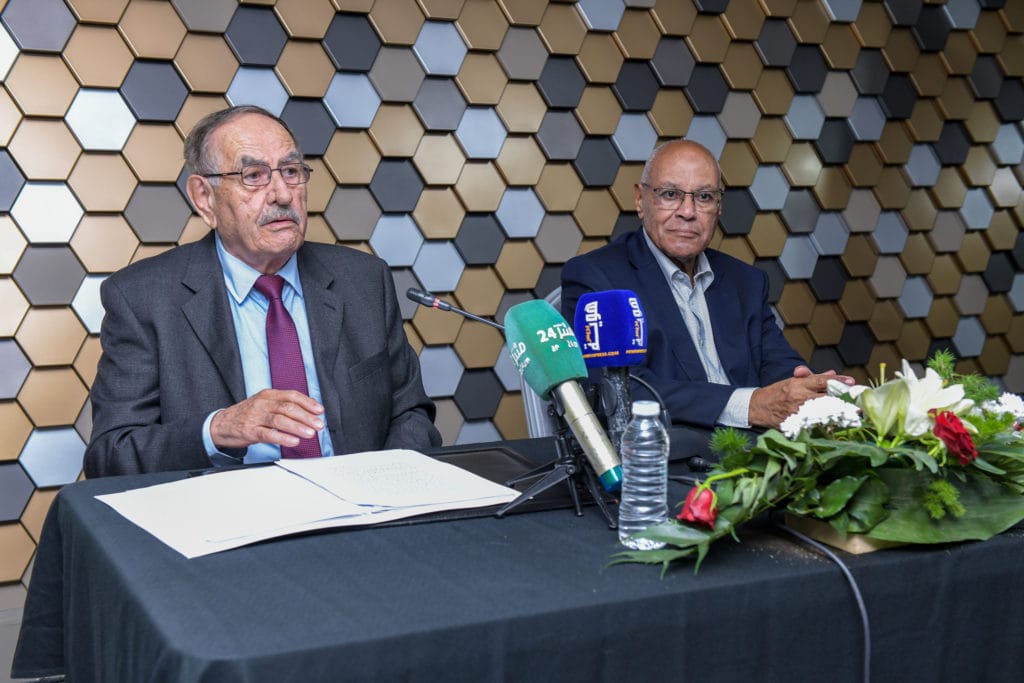
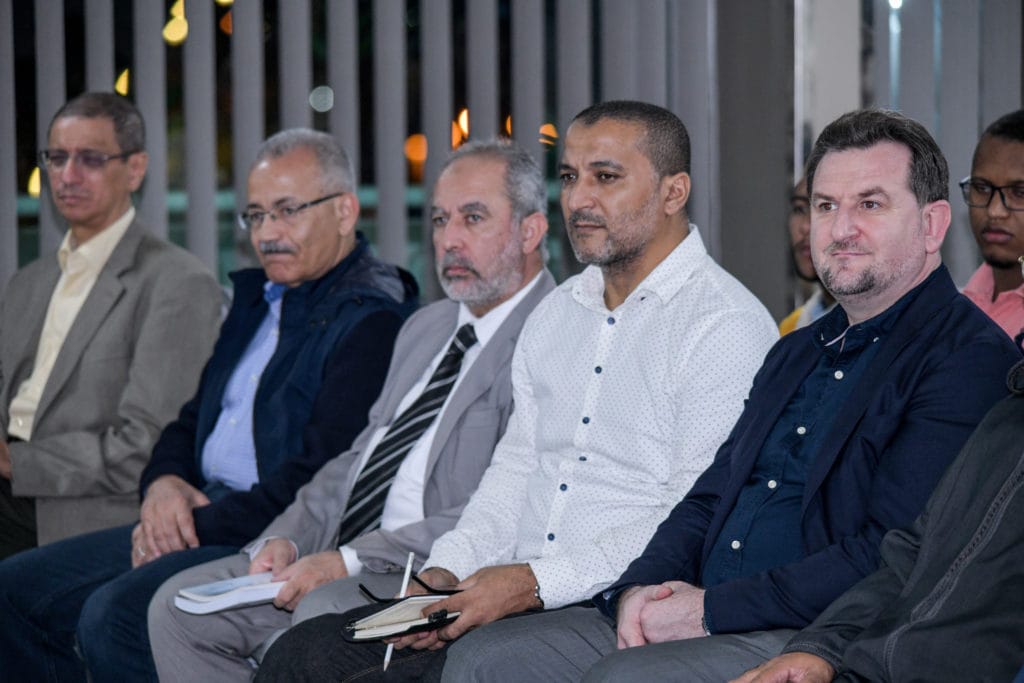
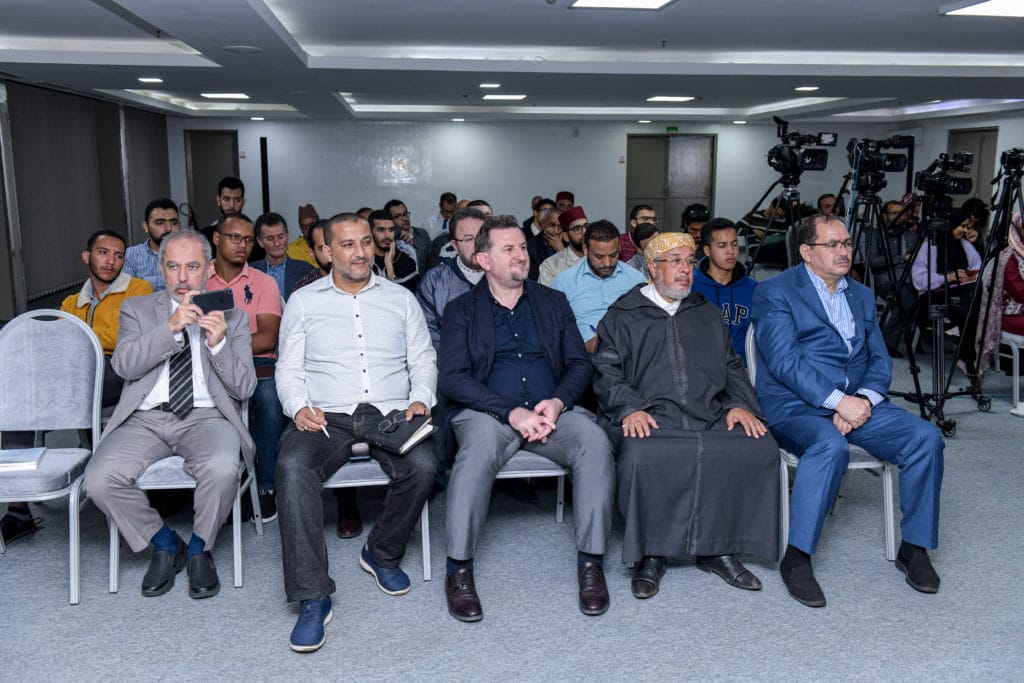
Where only one manuscript copy is available, I call this artificial critical edition. What does this mean? This unicum copy may be interpolated, for example, so you must question the text’s veracity, and search until you are sure of it.
I would like to point out why Ibn ‘Abd al-Barr authored “al-Istidhkār” when he already had “al-Tamhīd”. Many people confuse this matter, and perhaps assign “al-Tamhīd” to the Islamic jurisprudence (fiqh) compilation genre. Ibn ‘Abd al-Barr authored two books: the first on the craft of Prophetic tradition; this is “al-Tamhīd”, which he arranged following Imām Mālik’s teachers (shuyūkh), ordering them alphabetically. His aim was to elucidate the Prophetic traditions, the different chains of narrators, and so on. The second, “al-Istidhkār”, was a jurisprudence work, on comparative Islamic jurisprudence. Thus, he arranged “al-Istidhkār” following the order of the books of “al-Muwaṭṭa’ ” adopting the popular narration of Yaḥyā b. Yaḥyā al-Laythī al-Maṣmūdī. This Yaḥyā was not a scholar of Prophetic tradition, but an eminent jurisprudent; hence, eastern (mashriq) scholars did not admit his narration at all, except for one—Ibn al-Athīr in “Jāmi‘ al-uṣūl”.
The value of “al-Istidhkār” lies in the fiqh questions it contains. It is dedicated to comparative fiqh, which is true of only a few other works, such as “al-Mughnī” by Ibn Qudāmah, and “al-Muḥālā” by Ibn Ḥazm. “Al-Istidhkār” was written after the first version of “al-Tamhīd”. Ibn ‘Abd al-Barr did not neglect any jurist, whether from the pious forbears or any school of Islamic jurisprudence, but presented them all, in evidencing the question he was examining.
Hence, Dr Bashar created, as he said, a new index of fatwas by jurisprudents from the Companions (al-ṣaḥābah), Successors (al-tabi‘īn), and those after them. He gathered everything Ibn ‘Abd al-Barr presented of the fiqh of ‘Umar b. al-Khaṭṭāb, may Allah be pleased with him, ‘Āishah and ‘Abd Allāh b. Mas‘ūd, may Allah be pleased with both, and others of the successors, and founders and scholars of schools of Islamic jurisprudence. From the ordering of “al-Istidhkār”, it was clear he was well-endowed in the science of Prophetic tradition; as an exemplary jurisprudent, he shied away from fanaticism. He was open-minded in his reading of Islamic jurisprudence—unfettered and fair; the lecturer gave examples of this.
Dr Bashar mentioned that it is not permissible for one who is not versed in the science of the book that is to be critically edited to attempt to do so. A traditionalist (muḥadith) may critically edit books on Prophetic tradition; the jurisprudent may critically edit Islamic jurisprudence texts, because if he encounters a mistake in the text, he is alerted quickly, and critically edits it, as critical edition is a science. The editor must be alert to the author’s mistakes, and if he was not an expert, then how can he know that.
He concluded his lecture by saying that no one is infallible. Those who criticise must do so gently and without haste, with good manners not abuse; we exert our utmost effort, and may be right, or make a mistake.
